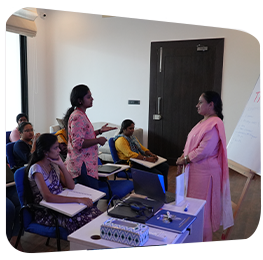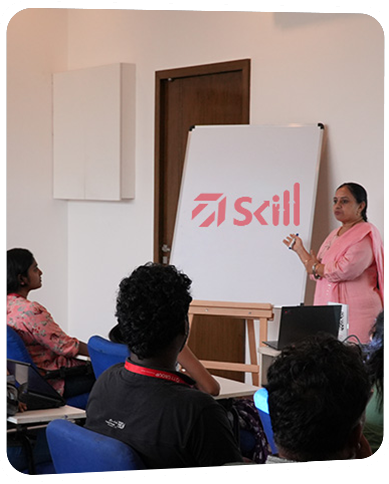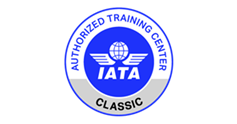Learn In-Demand Skills.
Build a Career You Love.
- Industry-certified online & classroom training from experts with real-world expreience.


Recognized for Excellence.
Empowering Tomorrow’s Workforce.
- Driving skill development in Aviation, Logistics, and Supply Chain to shape the leaders of tomorrow.


Learn In-Demand Skills.
Build a Career You Love.
- Industry-certified online & classroom training from experts with real-world expreience.


Recognized for Excellence.
Empowering Tomorrow’s Workforce.
- Driving skill development in Aviation, Logistics, and Supply Chain to shape the leaders of tomorrow.




Unique +
Learning

Why Choose Us?
TT Skill provides a transformative learning experience that bridges academia and industry. Our Edtech platform delivers engaging, NSQF-aligned courses led by expert instructors with real-world experience. Each learner gains future-ready, job-oriented skills tailored to industry needs.
Stay ahead with TT Skill’s industry-integrated training and begin your journey toward success.
 Government-Recognized
Government-Recognized
& NSQF-Aligned
 Global & Industry
Global & Industry
Partnerships
 Future-Ready Learning
Future-Ready Learning
Ecosystem
 Comprehensive Portfolio of Industry-Aligned Courses
Comprehensive Portfolio of Industry-Aligned Courses
 Proven Placement
Proven Placement
Support
 Tech-Driven & Hybrid
Tech-Driven & Hybrid
Learning Infrastructure
Academic Collaborations
Industrial Partners




Testimonials


What our Partners say

Amrita School of Business
🌟 A Heartfelt Thank You from Amrita School of Business! 🌟
We are incredibly grateful for the invaluable support provided to Ms. Amritha Nair during her placement preparation for DHL. Thanks to your expert coaching and dedicated guidance in the operations field, Amritha has successfully secured a position at DHL!
Your generosity, time, and unwavering commitment to instilling confidence and grooming future leaders like Amritha have truly made all the difference. The world needs more selfless leaders like you, who go above and beyond to empower others.
We look forward to your continued guidance and future collaborations. Together, we can make a lasting impact! 🙌

Prof Dr Jeremy Novak PhD
International Chief Investigator, United Nations Resilience Scorecard for Island Communities
Working with TT Skills as an international provider of high-quality vocational and higher education has been a rewarding experience. Their professionalism, commitment to excellence, and focus on delivering industry-relevant courses will enhance the learning opportunities for students and workers alike. The partnership between TT Skills and Global Development College exemplifies their dedication to fostering international collaborations, which will play a pivotal role in building local capacity and empowering communities and individuals across India. Congratulations on your official launch!

Eric Tan
Board Member, Global Development College, Australia
I have worked with TT Skill from the time it was conceptualised and seen it grow from an idea to the comprehensive world-class skilling organisation that it is today; complete with an outstanding set of domestic and international partners that co-deliver industry-relevant courses for students and workers alike. Congratulations on your Official Launch!
Frequently Asked Questions
TT Skill is the learning and skilling division of TT Group Global, offering government-recognised, NSQF-aligned training programmes in logistics, aviation, hospitality, and emerging sectors. It connects education with employability by providing industry-integrated, job-ready courses designed for real-world impact.
Yes. All TT Skill courses are aligned with the National Skills Qualification Framework (NSQF) and approved through academic and government collaborations such as ASAP Kerala and MCC Chennai. This ensures national recognition and alignment with India’s official skilling ecosystem.
TT Skill provides end-to-end placement assistance through its network of corporate and hiring partners including TT Logistics, Surf Turf, Alampara, TT Insurance. Students gain internships, industrial visits, and career guidance before final placement support.
TT Skill offers a future-ready learning ecosystem combining classroom, online, and hybrid learning. Unlike typical institutes, its programmes are co-created with industry experts, ensuring practical exposure, internships, and direct employability outcomes.
Yes. TT Skill follows a tech-driven hybrid model — combining live online classes, recorded modules on LMS, and in-person workshops or industry visits. This flexible approach lets learners’ study from anywhere without missing hands-on exposure.
TT Skill offers programmes across:
• Logistics & Supply Chain (Quick Commerce, Air Cargo, SCLA)
• Aviation & Hospitality
• Technology & Cybersecurity
• Green Energy & Manufacturing
Each course is mapped to NSQF Levels 4–6 and designed for both students and working professionals.
Academic: MCC Chennai, ASAP Kerala and IATA.
Industrial: TT Logistics, TT Insurance, Surf Turf, Alampara.
These partnerships ensure real-world exposure, internships, and joint certifications.
Visit www.ttskill.com/courses, select your preferred programme, and submit the online application form. You can also email reachus@ttskill.com or call +91-9600289729 for guidance on eligibility and next batch details.
Course fees vary by duration and NSQF level. All TT Skill fees are transparent, affordable, and industry-benchmarked for accessibility.
Yes. TT Skill actively partners with academic institutions, industry associations, and corporates to co-develop curricula, conduct faculty training programmes (FDPs), and establish skill labs. Interested organisations can contact collaborations@ttskill.com.
Corporate & Hiring Partners



